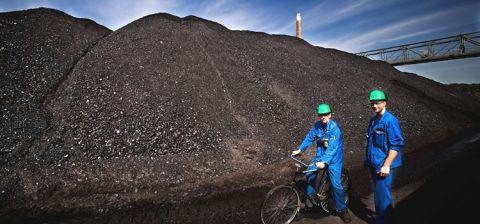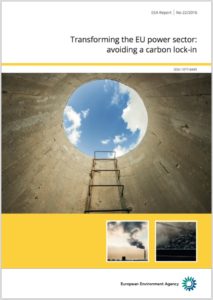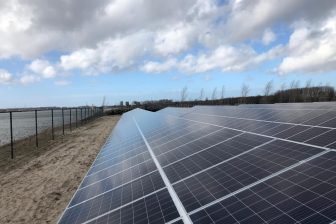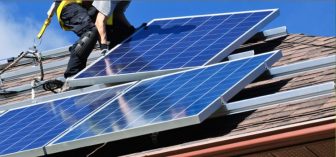
Milieuagentschap EU pleit voor sluiting oude kolencentrales vóór 2030
10 oktober 2016 – Als Europa zijn klimaatdoelen wil halen, moet het vóór 2030 zoveel mogelijk oude kolencentrales sluiten. Toekomstige investeringen moeten naar hernieuwbare energie gaan. Dat stelt het Europees Milieuagentschap in een rapport, waarin het waarschuwt voor een ‘carbon lock-in’.
In het rapport ‘Transforming the EU power sector: avoiding a carbon lock-in’ maakt het Europees Milieuagentschap (EEA) een analyse van de energiesector en kijkt daarbij speciaal naar de levensduur van de bestaande fossiele energie-opwekking. Het Europese klimaatdoel, om in 2050 80 tot 95 procent minder broeikasgassen uit te stoten dan in 1990, kan alleen gehaald worden als zoveel mogelijk oude kolencentrales hun deuren sluiten vóór 2030 en de investeringen vanaf nu vooral naar hernieuwbare energie gaan.
Uit een bericht van de NRC
‘(…) Het agentschap waarschuwt voor overcapaciteit in de fossiele energieopwekking, die investeringen in duurzame energiebronnen in de weg zal staan. Door te blijven investeren in kolen en gas raakt Europa verder afhankelijk van energiebronnen die bijdragen aan klimaatverandering, meent het EU-agentschap. (…)’
 Uit een bericht van de EEA
Uit een bericht van de EEA
‘(…) “Europe is now generating four times more wind power and 70 times more solar power as in 2005. This is good news, but a clear, forward-looking investment strategy is also necessary across the fossil fuel power sector to meet our long-term challenge to cut CO2emissions. Europe is committed to decarbonise its economy so we cannot afford to tie up our investments in emission-intensive technologies. Investing in renewables and energy efficiency provides the best return on our money,” said Hans Bruyninckx, EEA Executive Director. (…)
At present, power plant operators tend to prolong the operation of inflexible, carbon-intensive plants. If this trend is sustained while new fossil fuel capacity is added to the system, all fossil fuel power plants would need to curtail their activity to meet the EU’s commitment to reduce greenhouse gas emissions.
The report argues that a pan-European approach to climate and energy reduces the need for back-up fossil fuel generation capacity at national level. It also calls for an integrated and coherent tracking of progress towards EU climate and energy targets. This includes a regular sharing of information on the evolution of fossil fuel capacity and information on expected carbon-intensity levels over the short and medium term, to improve consistency in national and European decarbonisation efforts. It also suggests that an increased alignment of energy, climate and environmental policies can maximise benefits and speed up the transition to a secure, sustainable and competitive EU power sector. (…)’
Bronnen
EEA, 7 oktober 2016: Decommissioning fossil fuel power plants between now and 2030 essential for Europe’s low carbon future
EEA, rapport, 7 oktober 2016: Transforming the EU power sector: avoiding a carbon lock-in (84 pagina’s)
NRC, 7 oktober 2016: EU-agentschap: geen geld naar fossiele energie
Foto: FluxEnergie/© Paul Tolenaar



